Experts come together to enhance dengue prevention strategies in Vietnam
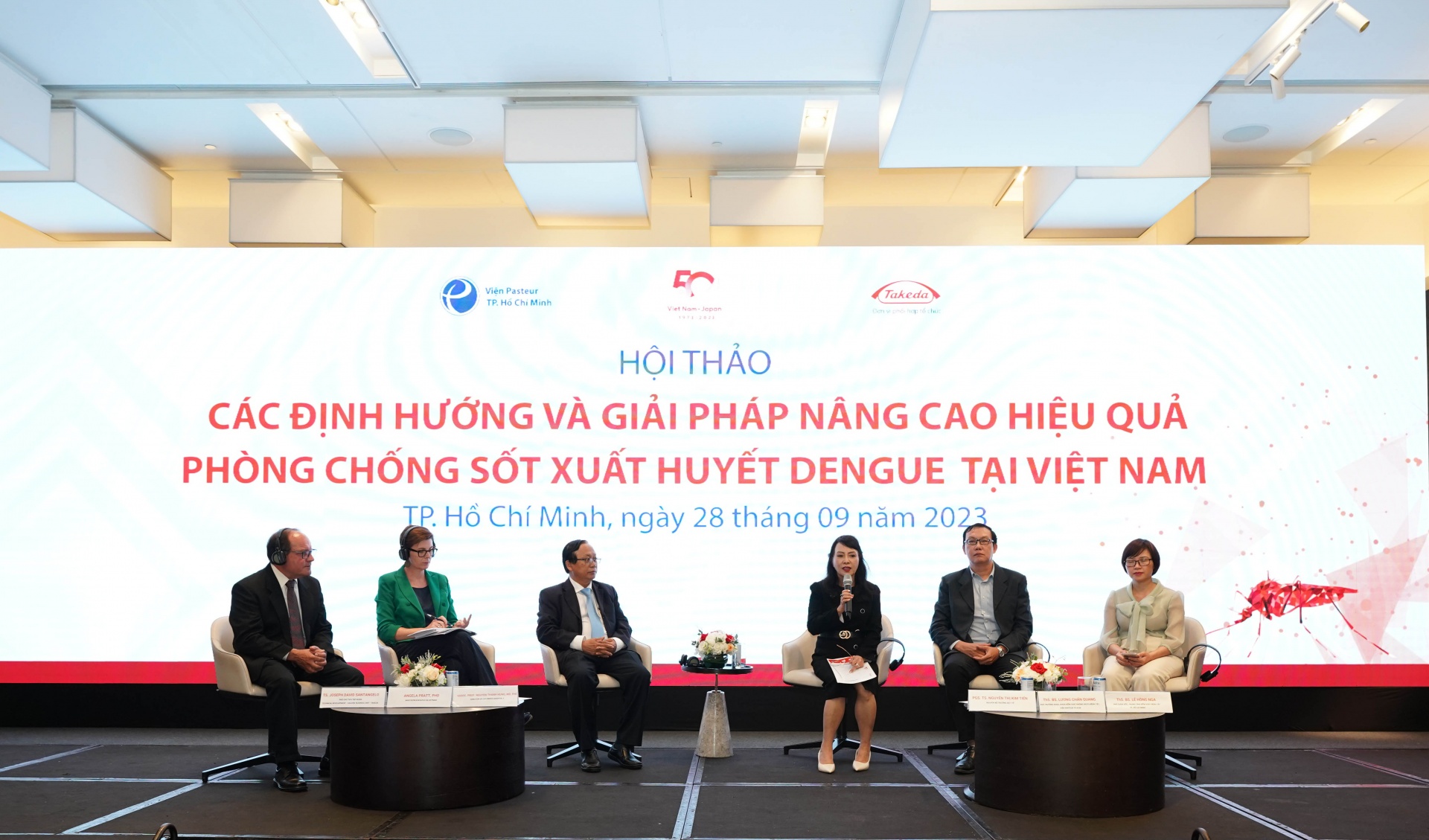 |
This conference, chaired by Nguyen Thi Lien Huong, Deputy Minister of the Ministry of Health (MoH), brought together over 100 delegates, including healthcare professionals from the MoH, the World Health Organisation, the Ho Chi Minh City Centre for Disease Control, the Pasteur Institute in Ho Chi Minh City, the Children's Hospital 1, and other medical facilities and vaccination centres nationwide.
The peak season for dengue haemorrhagic fever in Vietnam often lasts from June to October. At present, the country is facing the ongoing complexity of the development of outbreaks each year, placing rising pressure on Vietnam's healthcare system. As of now, Vietnam has recorded 81,808 cases of dengue fever this year, with 23 fatalities.
At the conference, both international and local health experts discussed Vietnam's dengue fever prevention initiatives, and methods to improve their effectiveness. They also explored new interventions that could enhance the management of dengue transmission within the country.
According to Nguyen Thanh Hung, director of the Children’s Hospital 1, dengue haemorrhagic fever still poses a major threat in Vietnam due to its potential to cause a large outbreak and severe health outcomes.
The disease is characterised by a high fever that lasts several days, and can result in serious complications such as hypovolaemic shock from plasma loss, gastrointestinal bleeding, cerebral haemorrhage, and multi-organ failure. These complications can rapidly progress and may be fatal if not promptly and intensively treated.
Beyond the health risks, dengue also imposes an economic strain on individuals and communities. It can affect anyone, from newborns to the elderly, but students and working-age individuals are most commonly impacted – leading to missed school or work. Family members may also need to take leave from their jobs to care for relatives, and the treatment costs can be relatively substantial compared to household income.
Moreover, the disease can have long-term psychological effects on patients and communities, and significantly impact social security. From a healthcare perspective, the increasing number of dengue patients over the years has put immense pressure on hospitals, resulting in a shortage of resources.
Hung added, “To maintain treatment capacity, medical facilities in Ho Chi Minh City and across the country have effectively implemented the MoH’s guidelines for diagnosing and treating dengue fever. This includes proper organisation of treatment at all healthcare levels and early detection, as well as strengthening facilities and equipment and ensuring adequate supplies of infusion fluids. These measures have saved many lives and significantly reduced the mortality rate from dengue fever in the country.”
"However, it is crucial to facilitate close collaboration between the treatment and prevention systems. Public awareness campaigns about dengue are essential for effective prevention, such as mosquito control and vaccination – when an effective option becomes available," he emphasised.
Luong Chan Quang, acting head of the Department for Disease Control and Prevention at the Pasteur Institute in Ho Chi Minh City said, “Dengue fever is very different from other infectious diseases, as it puts the entire population at risk, regardless of age. Alongside the current measures, which require more proactivity in light of the increasingly challenging environment, it’s crucial to incorporate learnings from dengue control models that employ advanced scientific methods in countries with similar climatic and epidemic conditions as Vietnam, such as Indonesia and Thailand. A stronger, more comprehensive, and sustainable epidemic control model can only be built when the medical community and society work together.”
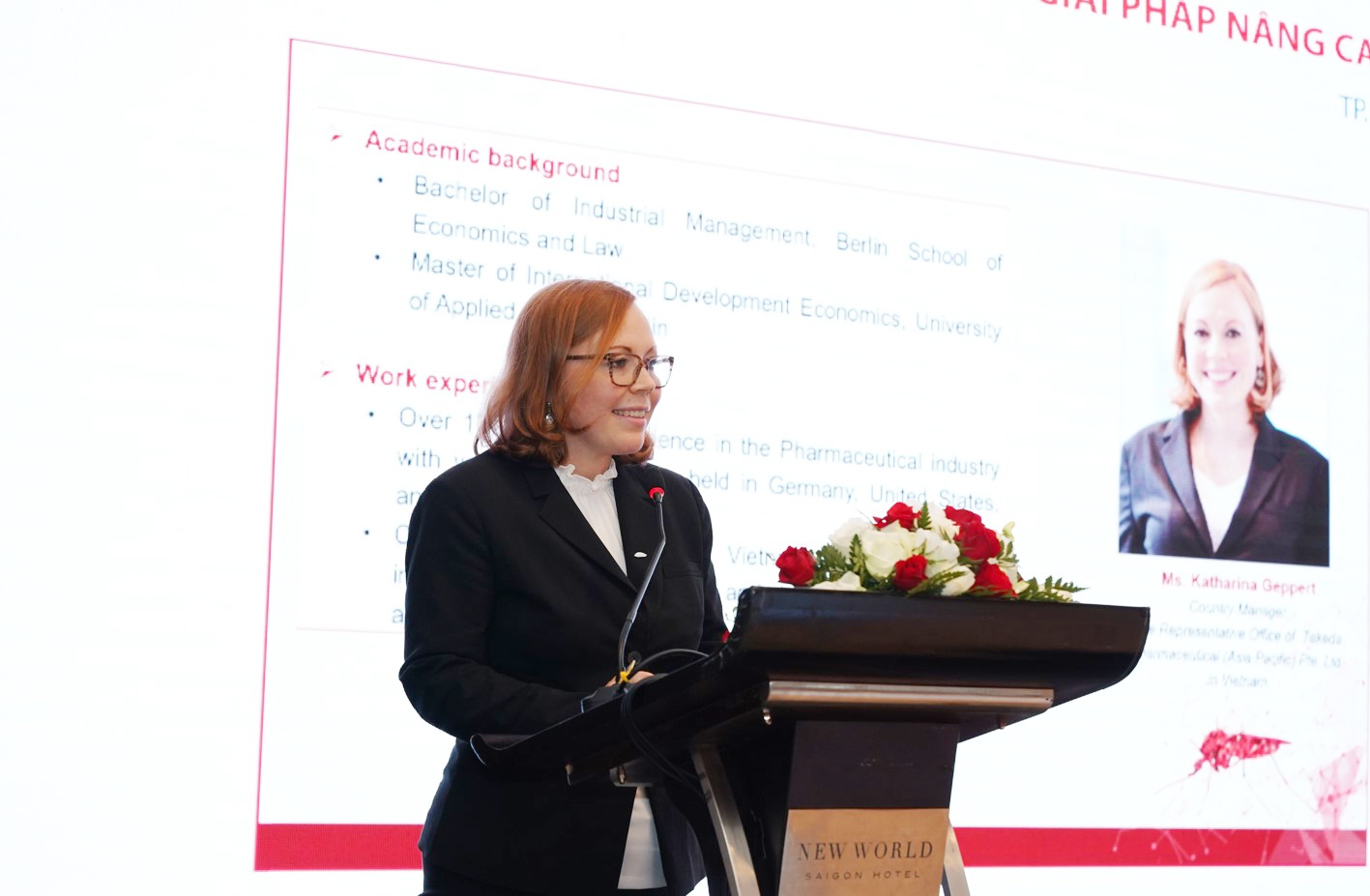 |
| Katharina Geppert, country manager of Takeda in Vietnam |
Hosting this conference in collaboration with the Pasteur Institute in Ho Chi Minh City, Takeda recognises the importance of cooperating with local partners to enhance dengue prevention and control.
Katharina Geppert, country manager of Takeda in Vietnam stated, "As a result of climate change and urbanisation, the complex outbreak pattern of dengue fever in Vietnam is making it challenging for experts to predict and plan the best preventative mechanisms. Therefore, this conference provides an excellent opportunity to identify the most effective management strategies, including the introduction of a new tool as part of an integrated dengue management and prevention programme."
"We are committed to collaborating with healthcare professionals, medical societies, academia, and government agencies to combat the growing burden of dengue in Vietnam and beyond," she added.
The experts at the conference alluded to the need for a sustainable and long-term solution to prevent and control dengue fever in the country. This requires not just clinical and preventative methods, but also efforts and collaborations from both the public and private sectors.
This conference is being organised in commemoration of the 50th anniversary of diplomatic relations between Vietnam and Japan.
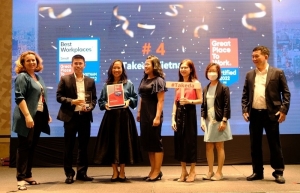 | Takeda Vietnam listed in the inaugural 2022 Vietnam Best Workplaces Takeda Vietnam was recognised as one of Vietnam’s best workplaces in 2022 by Great Place to Work® ASEAN & ANZ, the global organisation on workplace culture. |
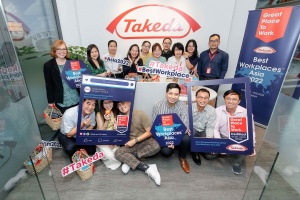 | Takeda Vietnam wins Best Workplace in Asia 2022 award by Great Place to Work Takeda Vietnam has prevailed over thousands of organisations to win the Best Workplace in Asia 2022 award by Great Place to Work, the global authority on workplace culture. |
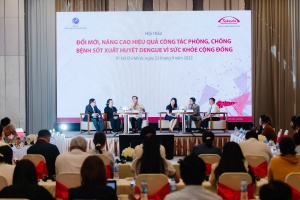 | Takeda Vietnam enhances effectiveness of dengue prevention and control The Pasteur Institute in Ho Chi Minh City joined hands with Takeda Vietnam to host a workshop on Innovating and enhancing the effectiveness of dengue prevention and control for public health on September 23. |
What the stars mean:
★ Poor ★ ★ Promising ★★★ Good ★★★★ Very good ★★★★★ Exceptional
Related Contents
Latest News
More News
- Industry-trade sector aims to turn challenges into opportunities in new era (January 22, 2026 | 09:23)
- KoCham and KN Holdings strengthen cooperation on eco-industrial parks (January 21, 2026 | 18:11)
- AMRO forecasts 7.6 per cent GDP growth for Vietnam in 2026 (January 21, 2026 | 11:44)
- Financial sector charts next steps as Party Congress convenes (January 21, 2026 | 09:58)
- Three key dynamics supporting Vietnam’s GDP growth in 2026 (January 20, 2026 | 16:34)
- Carlsberg Vietnam and Grab encourage responsible enjoyment and safer mobility (January 16, 2026 | 19:55)
- Redefining Vietnam’s growth model for the era of innovation (January 16, 2026 | 16:40)
- Nghi Son refinery processes first non-Kuwaiti crude cargo (January 16, 2026 | 16:06)
- Siemens and VSIP announce landmark strategic partnership (January 15, 2026 | 14:48)
- VinFast sets record with 175,099 electric vehicles delivered in Vietnam in 2025 (January 15, 2026 | 14:24)

 Tag:
Tag:


















 Mobile Version
Mobile Version